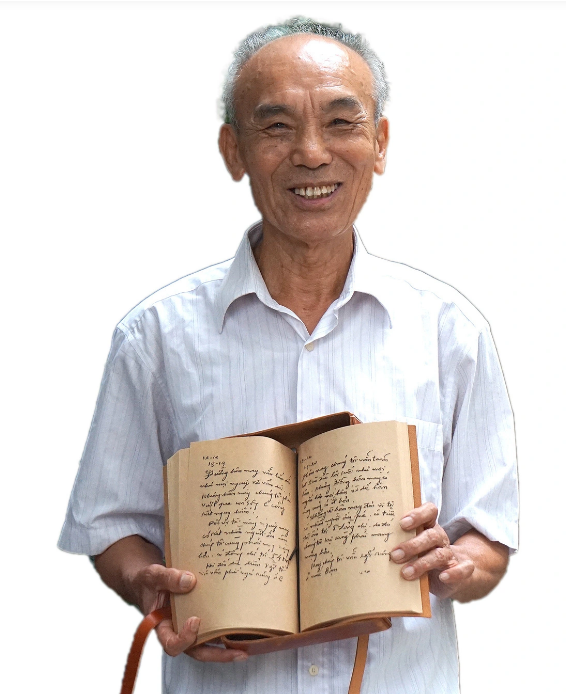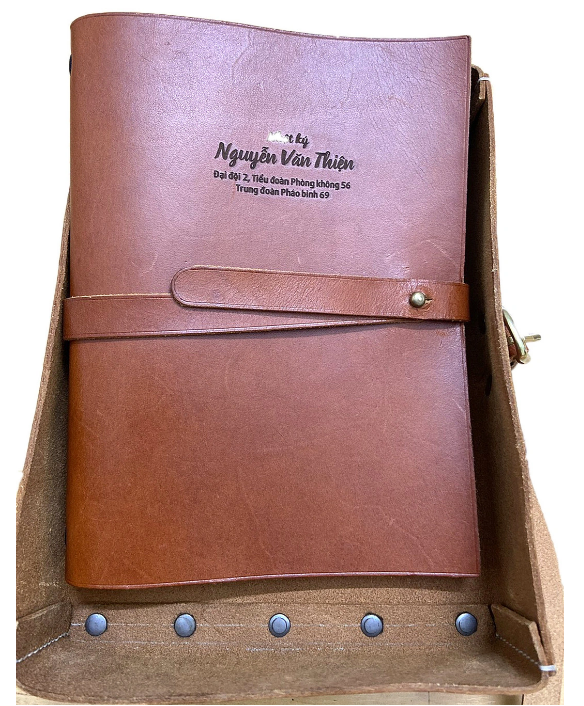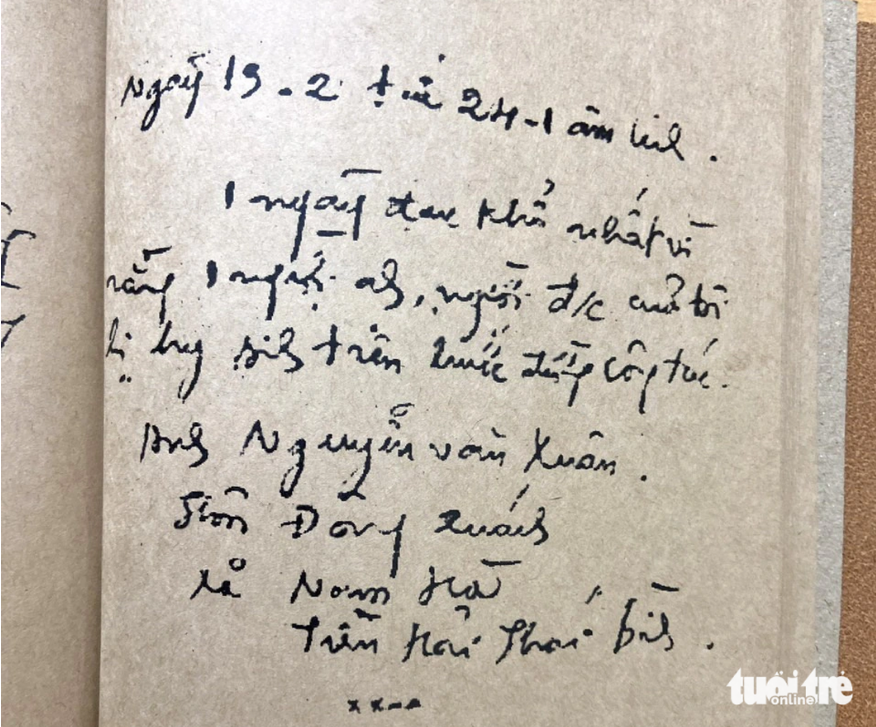Nguyen Van Thien, a war veteran from Tien Hai District in Thai Binh Province, northern Vietnam was astonished when the U.S. Department of Defense presented him with a diary he had lost 60 years prior.
In a very special moment during U.S. President Joe Biden’s two-day visit to Vietnam, which wrapped up on Monday, Thien finally received the notebook he believed to be lost forever.
The diary’s long journey home began about a year ago when Thien received a phone call asking if he was the writer of a war diary.
Immediately, Thien realized the diary in question was a notebook he had lost during a military operation called 'Junction City' in early 1967.
Now, decades later, the diary is a stark reminder of the fierce war and the camaraderie he shared with his fellow soldiers.
Thien is the only son of a martyr from Vietnam’s revolution against France. As such, he was exempt from conscription during the American war in Vietnam.
However, when the war began to escalate in 1965, then-17-year-old Thien felt he could not sit back and watch as his fellow countrymen served in his stead.
He then began sending in application after application until authorities finally allowed him to join the war effort.
Several months later, after spending considerable time training with a 443-strong air defense battalion from Thai Binh, Thien traveled south for battle.
It was then, amongst the heart-breaking loses of heroic soldiers on the battlefield, that Thien began noting down the things he saw and the ways he felt.
According to Thien, losing the diary felt like losing a piece of himself and the threads holding him to some of the most profound, agonizing, and glorious memories of his youth.
During those days, there were strict regulations on what information soldiers could record about the war.
As such, Thien included no personal information in the diary and, therefore, believed he would never see it again.
|
|
| The diary was given a leather cover and a leather box before being handed over to its owner. Photo: Thien Dieu / Tuoi Tre |
Years later, when a group of Vietnamese researchers at Harvard University involved in a 'Unseen Legacies of the Vietnam War' project was researching, cataloguing, and sharing information about the memories of Vietnamese veterans during the war, they came across Thien’s diary.
Flipping through the pages, they stumbled upon a note Thien had written grieving a fallen comrade.
“February 13, or the 24th day of the first lunar month, [is] the most sorrowful day as my brother, my comrade, laid down his life while on duty. Nguyen Van Xuan, [in] Dong Quach Village, Nam Ha Commune, Tien Hai, Thai Binh,” Thien wrote at the time.
In early 1965, Thien’s battalion made a stop in the Central Highlands province of Kon Tum on their way south. Some soldiers took charge of gathering rice for the battalion, including Thien’s close friend, Nguyen Van Xuan.
Unfortunately, Xuan caught malaria while gathering rice and passed away. Xuan left three remembrances for Thien and asked Thien to transfer his watch to his wife in their hometown.
Xuan’s death marked the first fallen soldier in Thien’s battalion.
According to Dr. Nguyen Hai, director of the Unseen Legacies of the Vietnam War project, it was Thien’s note about Xuan that gave the researchers hope that they might find the diary’s rightful owner.
Researchers in Dr. Hai's group later visited Xuan’s family, hoping they could shed some light on who the owner of the diary might have been.
During the meeting, Xuan’s daughter shared that she believed the author of the diary to be Thien.
She added that Thien had returned to Thai Binh in 1972 to be treated for wartime injuries and had brought Xuan’s watch with him to place on his altar, where it still sits today.
|
|
| The page Nguyen Van Thien wrote about his comrade – the clue that led the diary back to its rightful owner. Photo: Thien Dieu / Tuoi Tre |
Recognized as a martyr after nearly 6 decades
Among the documents and exhibits that the U.S. Department of Defense handed over to Vietnam during President Biden’s visit to the Southeast Asian country was a report by Dr. Hai’s team regarding the fate of 563 Vietnamese martyrs.
Vietnam goes to extraordinary lengths to search for the remains of martyrs in order to recognize their sacrifice to the country.
One such martyr was Dang Thanh Tuan from An Duc Commune, Hoai An District, Binh Dinh Province, south-central Vietnam, who was recognized as a martyr in late 2022, more than 50 years after his death.
Tuan was a southern student studying in the north. He wrote letters with blood begging to join the army in 1964 and was accepted in 1965.
In early 1966, he left home for the south. His family never heard from him again despite spending nearly 50 years working with agencies to hunt down information.
Thanks to the support of many people, they found documents that the U.S. military confiscated during the war in Vietnam on the Internet, including the list of Vietnamese martyrs and their death notices, consisting of Dang Thanh Tuan.
At the beginning of 2020, Tuan’s family wrote to the U.S. Embassy in Hanoi asking for help to verify the information.
Dr. Hai and his team eventually dug up considerable information on Tuan and, on September 8, 2022, the Vietnamese prime minister signed a decision to recognize Tuan and eight others in Hanoi and nothern Hai Duong Province as martyrs.
“We never skip a single piece of paper because we understand that a piece of paper could decide the destiny of a soldier or family,” Hai said.
The Unseen Legacies of the Vietnam War project is part of a memorandum of understanding signed in July 2021 between the Vietnamese Ministry of National Defense and the U.S. Department of Defense.
Like us on Facebook or follow us on Twitter to get the latest news about Vietnam!


















































